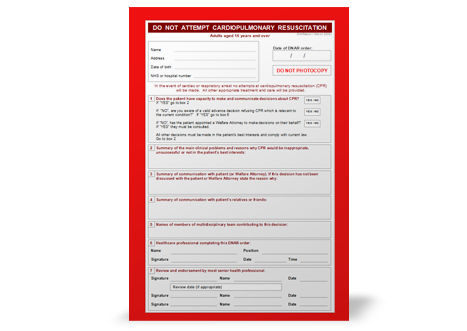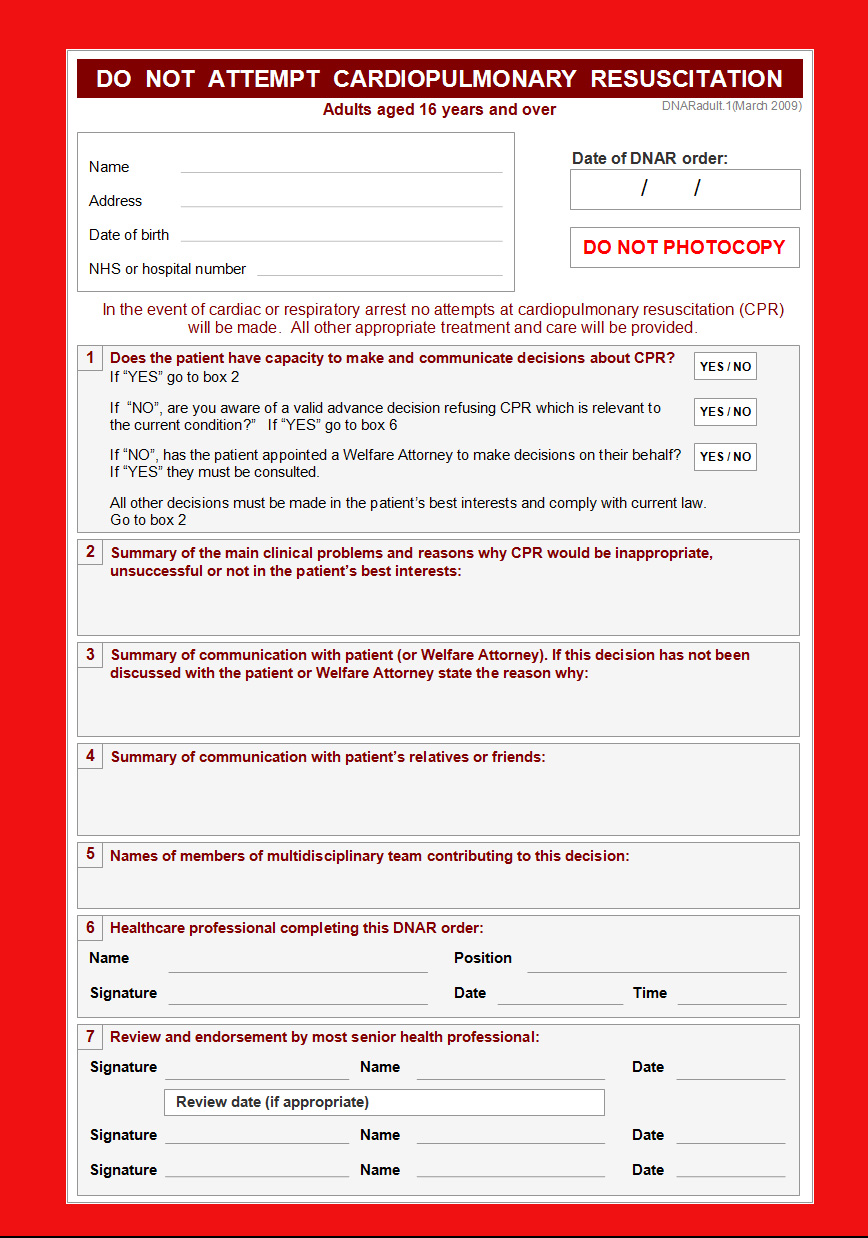
Introduction
Successful resuscitation attempts have brought extended, useful and precious life to many individuals. However, only a minority of people survive and make a complete recovery after attempted resuscitation from cardiac arrest.
Attempted resuscitation carries the risk of causing suffering and prolonging the process of dying. It is not an appropriate goal of medicine to prolong life at all costs.
It is incumbent on all healthcare practitioners to practice within the law. The law as it relates to CPR varies from country to country. Even within the UK there are some differences between countries. As an ALS provider you should be familiar with the relevant aspects of law in the country where you live and work.
Discussing decisions about CPR can be difficult and distressing for patients and relatives, and for healthcare providers. These decisions may be influenced by various factors including personal beliefs and opinions, cultural or religious influences, ethical and legal considerations, and social or economic circumstances.
The model Do not attempt resuscitation (DNAR) form can be found in the essentials tab.
Select Next to continue.
It is incumbent on all healthcare practitioners to practice within the law. The law as it relates to CPR varies from country to country. Even within the UK there are some differences between countries. As an ALS provider you should be familiar with the relevant aspects of law in the country where you live and work.
Discussing decisions about CPR can be difficult and distressing for patients and relatives, and for healthcare providers. These decisions may be influenced by various factors including personal beliefs and opinions, cultural or religious influences, ethical and legal considerations, and social or economic circumstances.
The model Do not attempt resuscitation (DNAR) form can be found in the essentials tab.
Select Next to continue.

References
- See chapter 16 of the ALS manual for further reading about decisions relating to resuscitation
- Joint statement about decisions relating to cardiopulmonary resuscitation published by the British Medical Association (BMA), the Resuscitation Council (UK) and the Royal College of Nursing (RCN) http://www.resus.org.uk/pages/dnar.htm


- The Resuscitation Council (UK) guidance on the legal status of those who attempt resuscitation http://www.resus.org.uk/pages/legal.htm


- The General Medical Council (GMC) guidance on treatment and care towards the end of life: good practice in decision making www.gmc-uk.org/guidance/ethical_guidance/end_of_life_care.asp


Model DNAR forms
Follow this link to see the recommended standards for recording 'Do not attempt resuscitation' (DNAR) decisions and the model DNAR forms www.resus.org.uk/pages/dnarrstd.htm




Settings
Font colour
default inverted high contrast high contrast inverted high contrast soft green on blackSample text
text looks like thisTEXT LOOKS LIKE THIS



